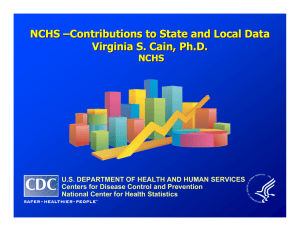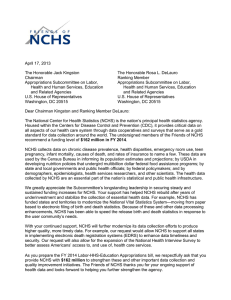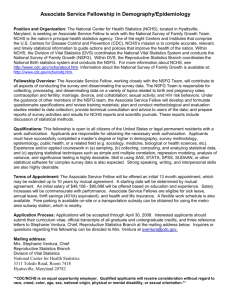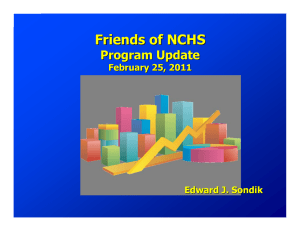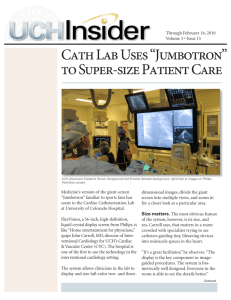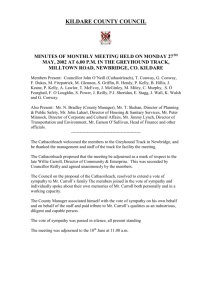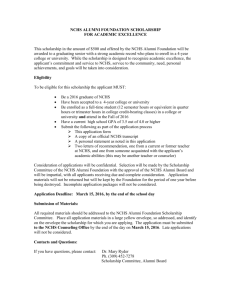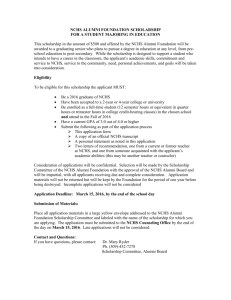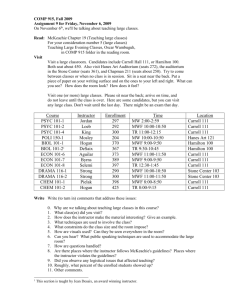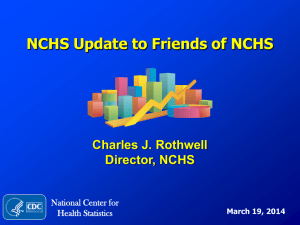Principal*s Environmental Education Action Plan
advertisement
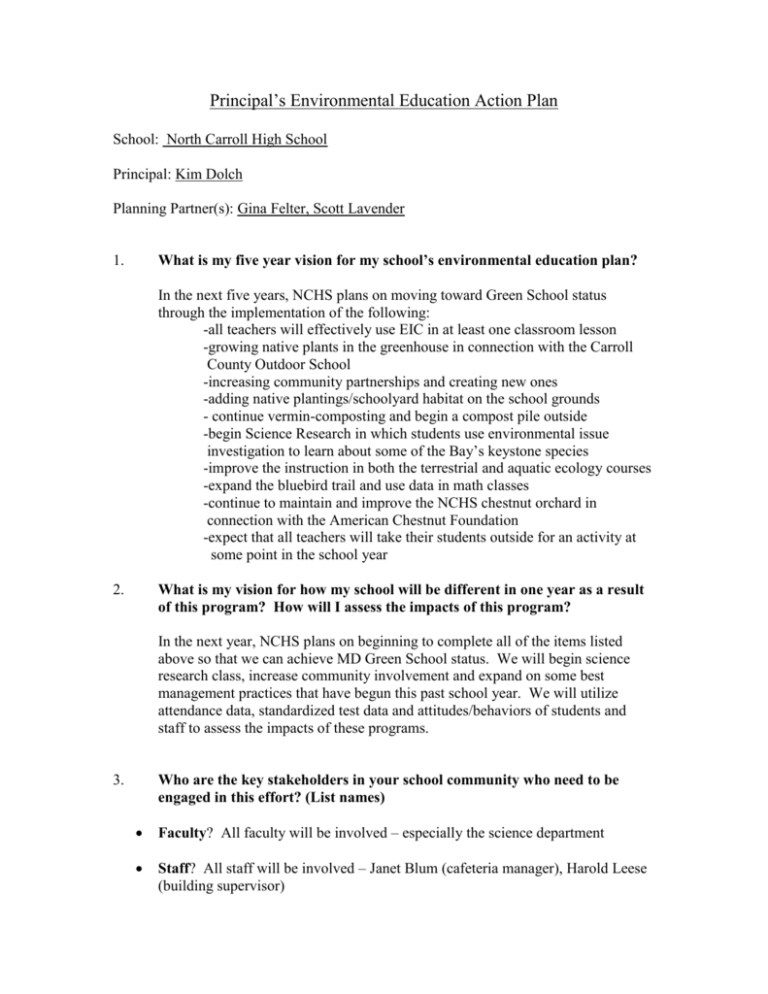
Principal’s Environmental Education Action Plan School: North Carroll High School Principal: Kim Dolch Planning Partner(s): Gina Felter, Scott Lavender What is my five year vision for my school’s environmental education plan? 1. In the next five years, NCHS plans on moving toward Green School status through the implementation of the following: -all teachers will effectively use EIC in at least one classroom lesson -growing native plants in the greenhouse in connection with the Carroll County Outdoor School -increasing community partnerships and creating new ones -adding native plantings/schoolyard habitat on the school grounds - continue vermin-composting and begin a compost pile outside -begin Science Research in which students use environmental issue investigation to learn about some of the Bay’s keystone species -improve the instruction in both the terrestrial and aquatic ecology courses -expand the bluebird trail and use data in math classes -continue to maintain and improve the NCHS chestnut orchard in connection with the American Chestnut Foundation -expect that all teachers will take their students outside for an activity at some point in the school year 2. What is my vision for how my school will be different in one year as a result of this program? How will I assess the impacts of this program? In the next year, NCHS plans on beginning to complete all of the items listed above so that we can achieve MD Green School status. We will begin science research class, increase community involvement and expand on some best management practices that have begun this past school year. We will utilize attendance data, standardized test data and attitudes/behaviors of students and staff to assess the impacts of these programs. 3. Who are the key stakeholders in your school community who need to be engaged in this effort? (List names) Faculty? All faculty will be involved – especially the science department Staff? All staff will be involved – Janet Blum (cafeteria manager), Harold Leese (building supervisor) Parents? Parent booster groups Students? NCHS Green Team, ecology class students, science research students Community Members/Organizations? Hampstead Business Association Others? 4. What are the likely instructional connection points? (Who on my staff can confirm/investigate this?) Instructional connection points should be made in all disciplines in the use of EIC in the coming year. Specific courses for integration of environmental issue investigation include science research, aquatic and terrestrial ecology, horticulture, landscaping, foundations of technology, AP environmental science and issues. 5. What are my structural/operations/grounds resources? What can be developed on or near my school property? Currently NCHS has a chestnut orchard, bluebird trail, school-wide recycling and vermi-composting. We plan on expanding on these projects as well as utilize a nearby stream and water retention area for instruction. We also plan on adding some native habitat plantings to enhance the watershed on our school grounds. 6. What/who are my community resources? (PTA, school system, non-profits, other?) The community resources that we plan on utilizing include the Chesapeake Bay Trust grant program, the Carroll County Board of Education and the Carroll County Outdoor School. We also plan on exploring other booster organizations that may add resources for our projects. 7. What funding opportunities exist to support this initiative? Who in the school community can help develop/investigate new funding sources? Funding opportunities will come from grants that will be written to the Chesapeake Bay Trust and the Carroll County science supervisor. The Carroll County Outdoor School will also donate some planting materials for our projects. 8. How will I drive/implement this initiative? Check all that apply: School Improvement Team Parent Teacher Association Student Council/Environmental Club Green Committee Other: _____________________________________________________ 9. How will I introduce this program to my staff and school community? The MD Green School program has been introduced to staff through a presentation using the ecological footprint online and some other locally created products. We plan on visiting Hashawha Environmental Center on the first day back to introduce teachers to some new common core standards of teaching, as well as to improve their local environmental literacy. Other faculty programs will follow as the year progresses. The school community will be introduced through the website, newsletters, parent presentations and student instruction as the Green School program is integrated throughout NCHS this year. By the end of the retreat, you should be prepared to share some highlights from your action plan. When we meet during the school year we will share how your initial efforts have turned out and how you have revised your plan and expectations.
